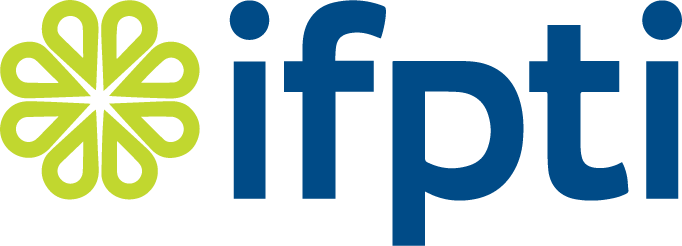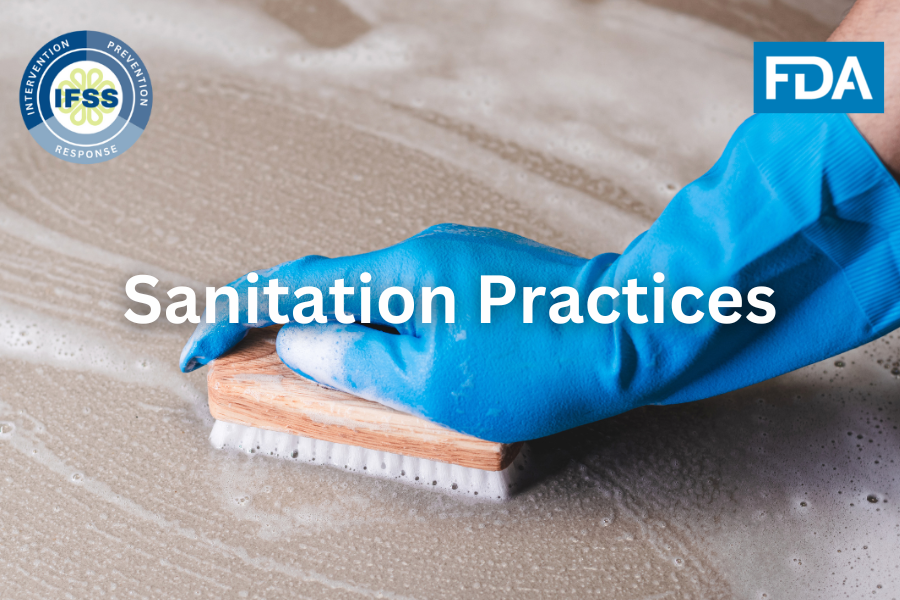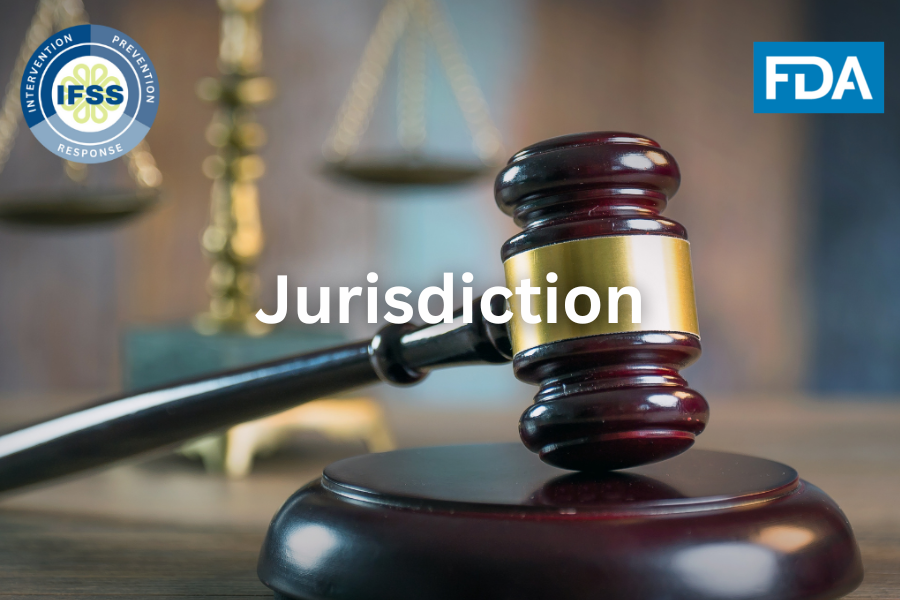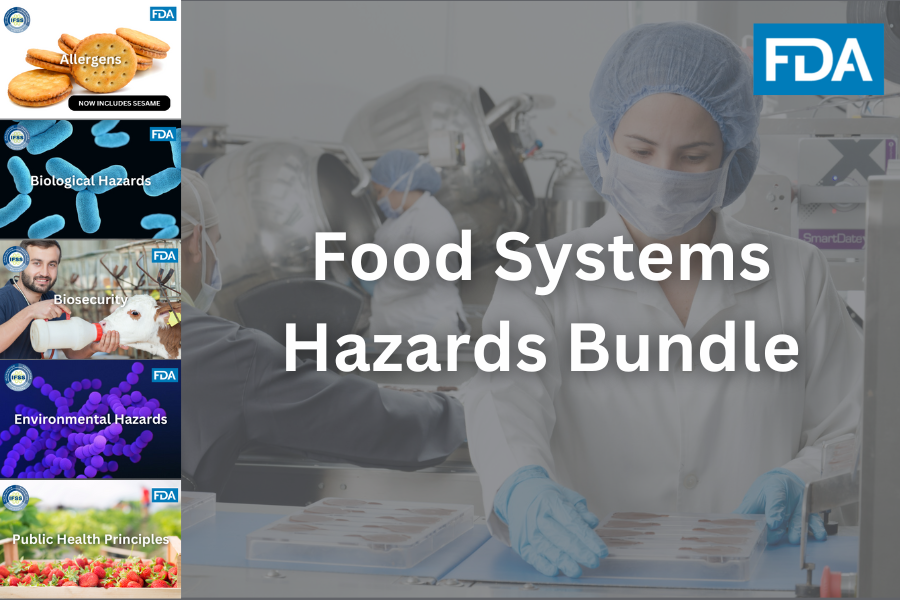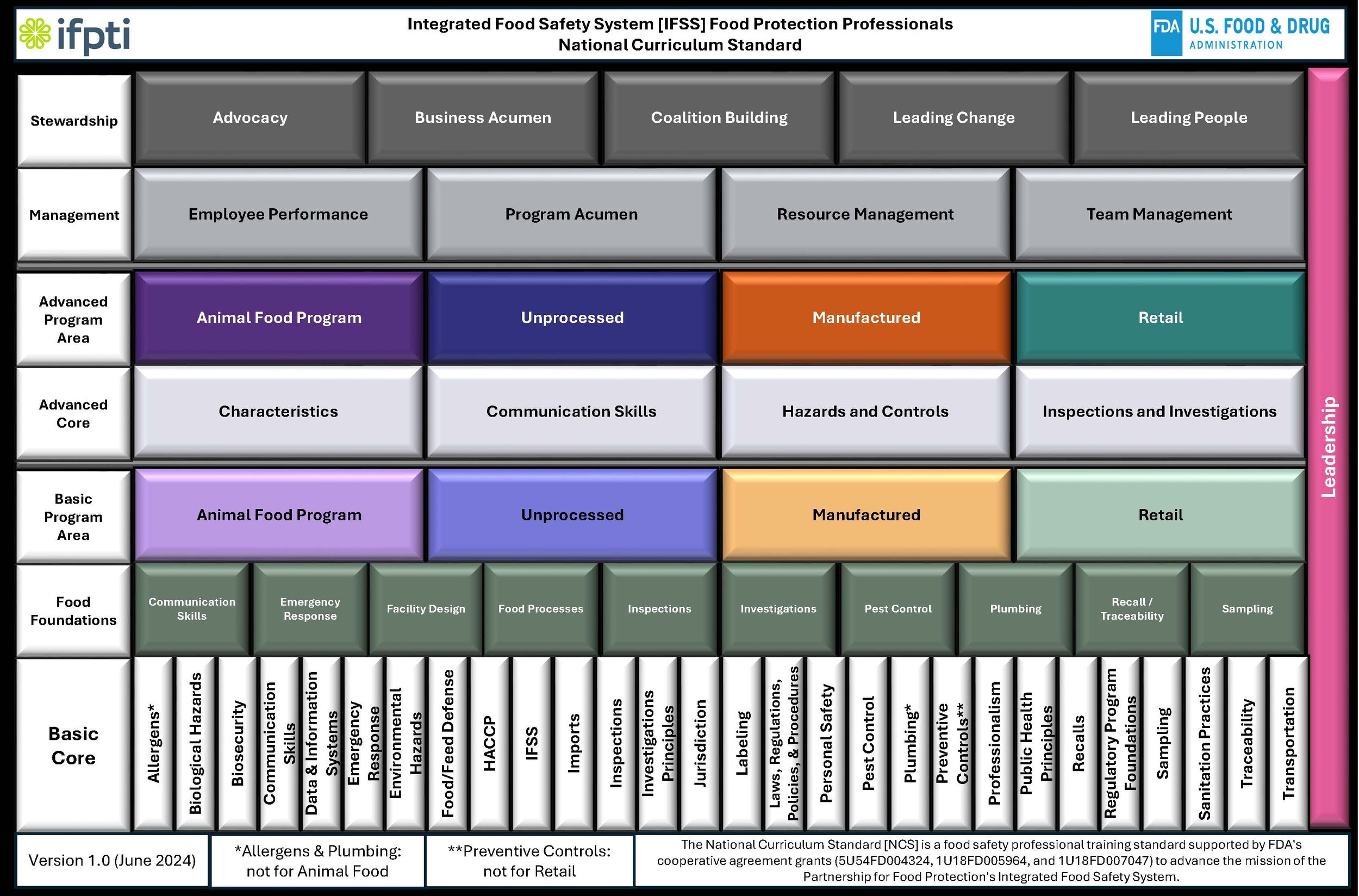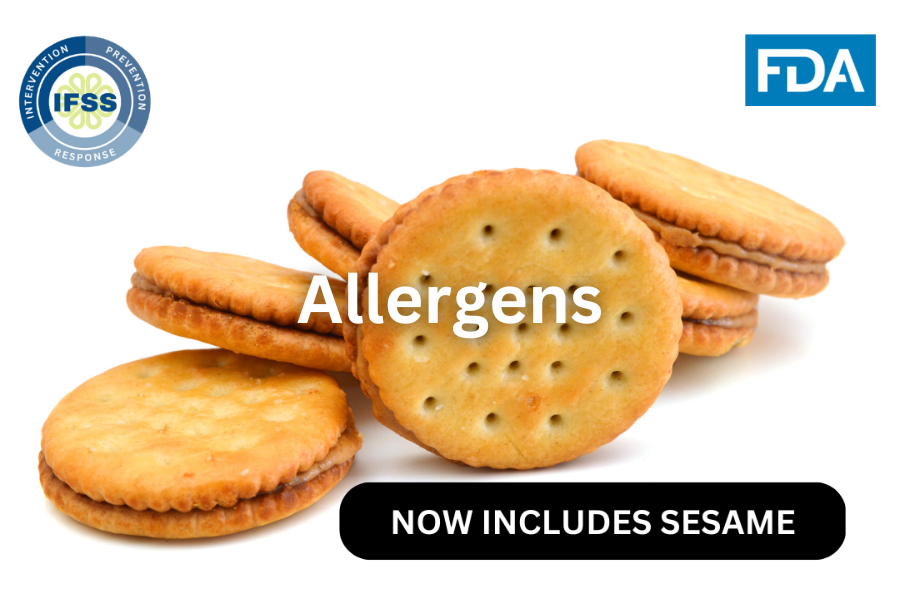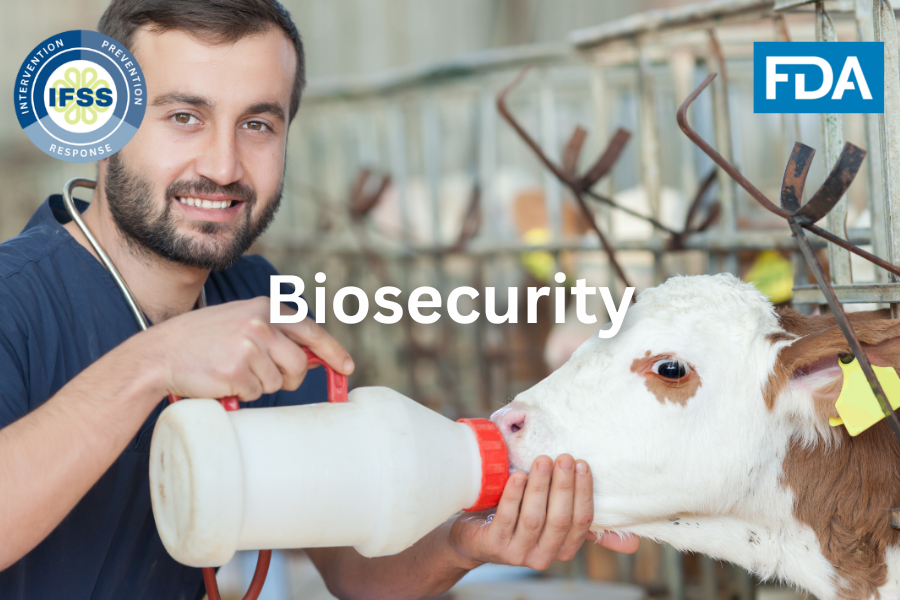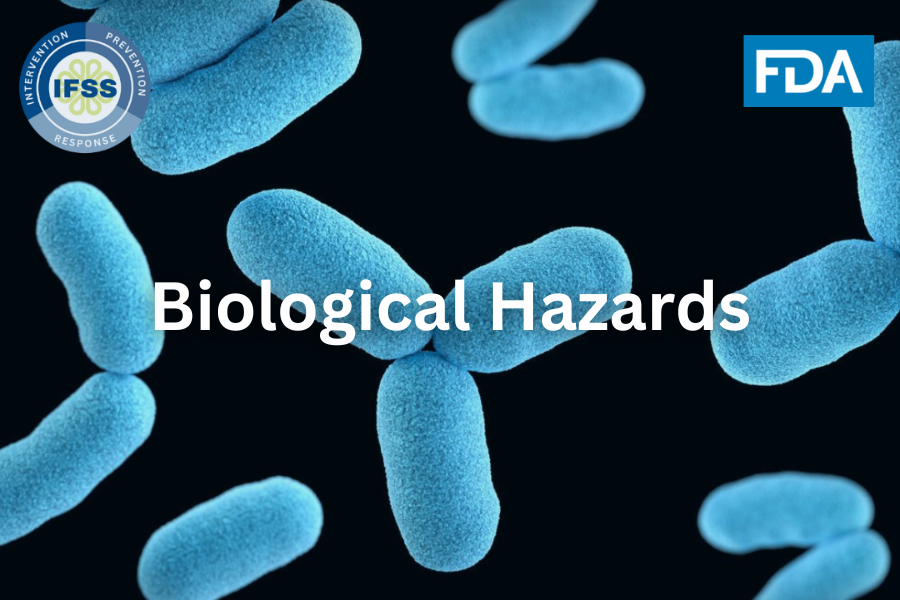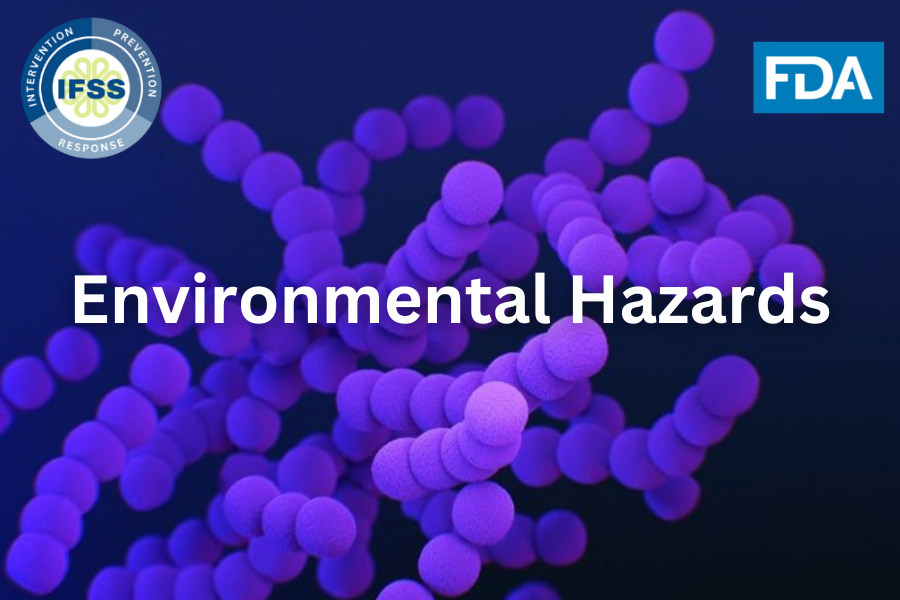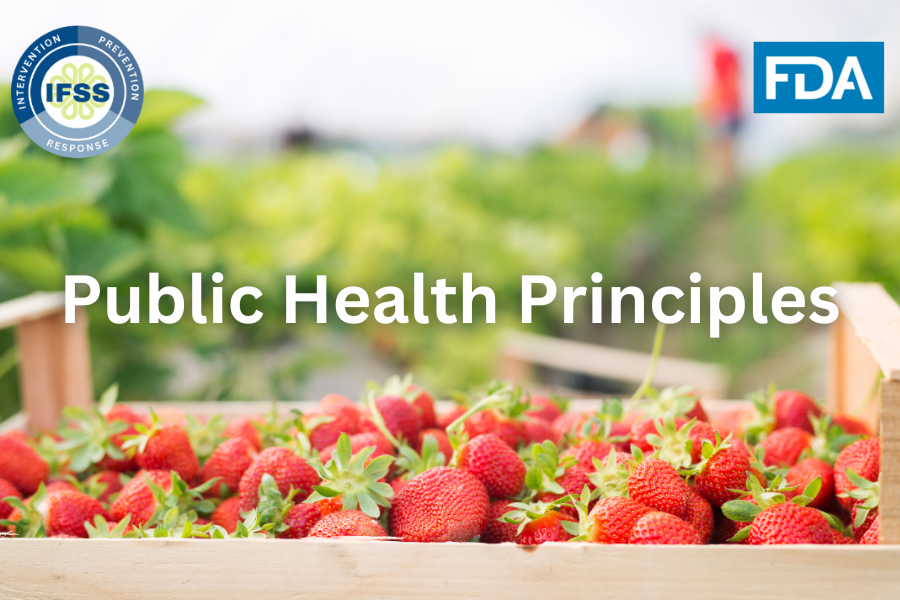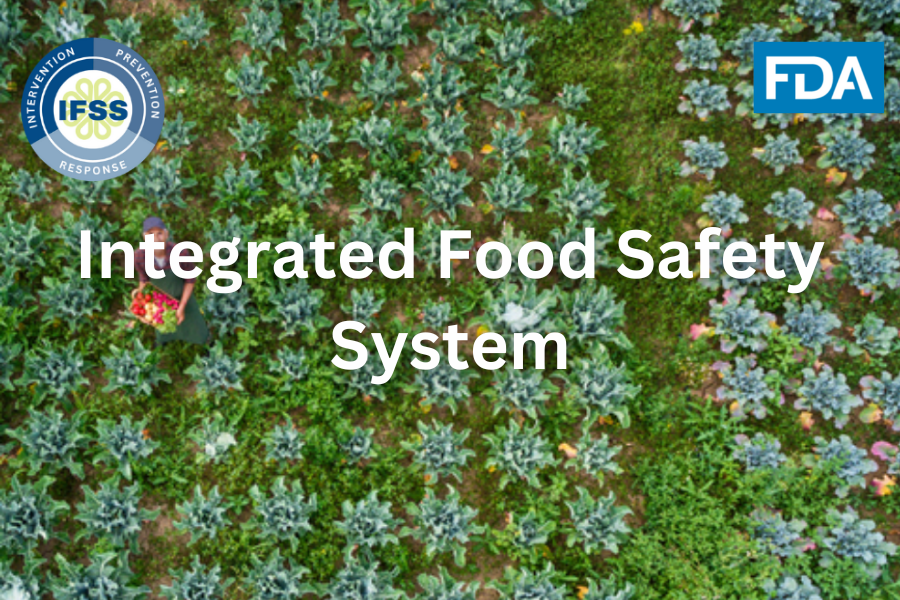 Image 1 of 2
Image 1 of 2

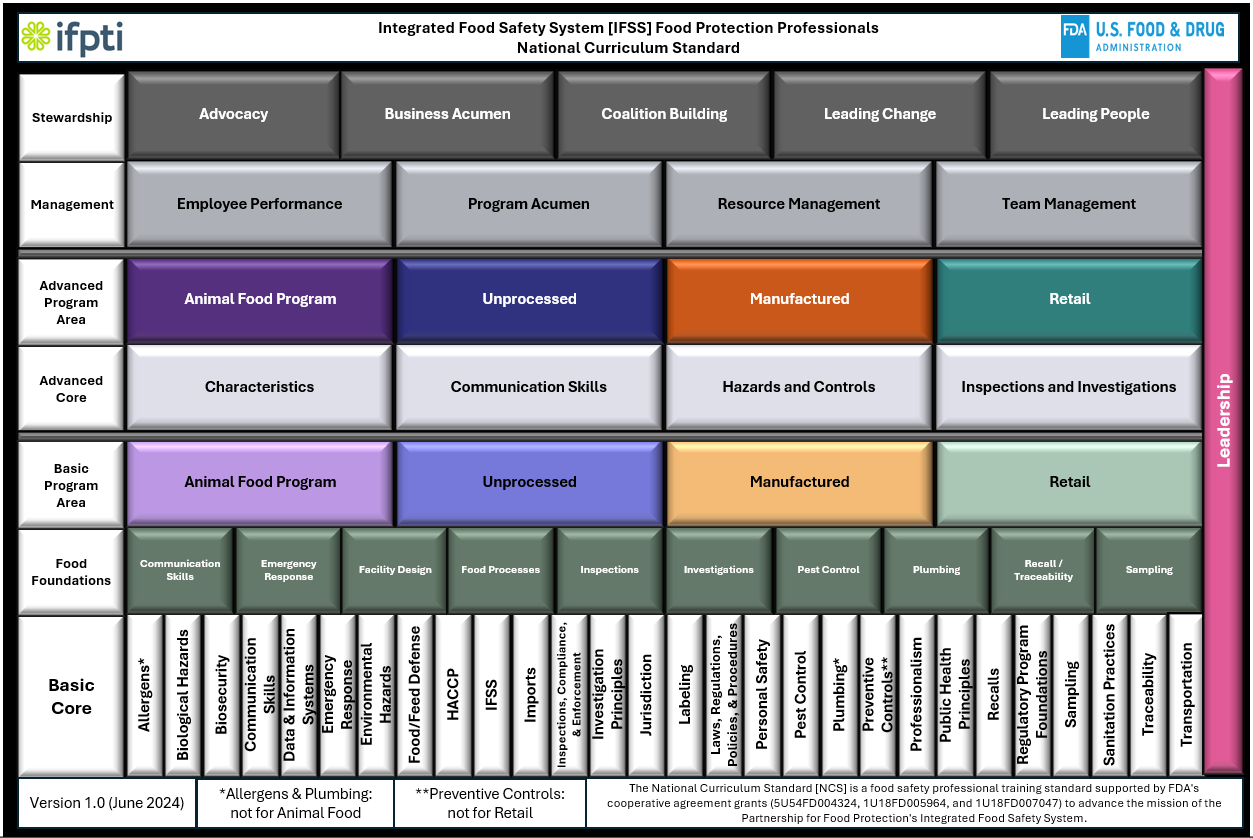 Image 2 of 2
Image 2 of 2



Integrated Food Safety System
The IFSS Basic Level Integrated Food Safety System course provides introductory knowledge, skills, and abilities related to the concept of a national collaborative and cooperative network of federal, state, local, tribal, and territorial feed and food protection agencies working in concert to protect the U.S. feed and food supply.
Goal: Participants will be able to recognize how collaborative interrelationships of regulatory agencies promote and protect public health in a global environment. It is designed for basic level regulators.
Scope: Topics in this course include Foundations of an Integrated Food Safety System, Stakeholders of an IFSS, Supporting Stakeholder Collaboration, and Program Standards and the Importance of Sustaining.
Course Objectives:
Foundations of an Integrated Food Safety System
Define relevant terminology,
Define the concept of the IFSS,
Recall the development of the IFSS,
Recognize the relationship between the IFSS and FSMA,
Recognize the IFSS role throughout the global human and animal food supply, and
Recognize the IFSS sustainability.
Stakeholders of an IFSS
Identify stakeholders,
Recognize the roles for each stakeholder,
Recognize how stakeholders influence public policy, and
Recognize the role of human and animal food safety alliances.
Supporting Stakeholder Collaboration
Identify collaboration activities,
Discuss the use of funding vehicles to support collaboration,
Identify examples of collaboration, and
Discuss the relationship between formal agreements and the IFSS.
Program Standards and the Importance of Sustaining
Identify the rationale for regulatory program standards,
Recognize the importance of continuous improvement systems,
Recognize the relationship between international standards and domestic human and animal food safety, and
Recognize how data sharing could enhance regulatory activities.
Duration:
Unit 1: Foundations of an Integrated Food Safety System – 32 minutes
Unit 2: Stakeholders of an IFSS – 37 minutes
Unit 3: Supporting Stakeholder Collaboration – 28 minutes
Unit 4: Program Standards and the Importance of Sustaining – 20 minutes
Total Course time – 2 hours
The IFSS Basic Level Integrated Food Safety System course provides introductory knowledge, skills, and abilities related to the concept of a national collaborative and cooperative network of federal, state, local, tribal, and territorial feed and food protection agencies working in concert to protect the U.S. feed and food supply.
Goal: Participants will be able to recognize how collaborative interrelationships of regulatory agencies promote and protect public health in a global environment. It is designed for basic level regulators.
Scope: Topics in this course include Foundations of an Integrated Food Safety System, Stakeholders of an IFSS, Supporting Stakeholder Collaboration, and Program Standards and the Importance of Sustaining.
Course Objectives:
Foundations of an Integrated Food Safety System
Define relevant terminology,
Define the concept of the IFSS,
Recall the development of the IFSS,
Recognize the relationship between the IFSS and FSMA,
Recognize the IFSS role throughout the global human and animal food supply, and
Recognize the IFSS sustainability.
Stakeholders of an IFSS
Identify stakeholders,
Recognize the roles for each stakeholder,
Recognize how stakeholders influence public policy, and
Recognize the role of human and animal food safety alliances.
Supporting Stakeholder Collaboration
Identify collaboration activities,
Discuss the use of funding vehicles to support collaboration,
Identify examples of collaboration, and
Discuss the relationship between formal agreements and the IFSS.
Program Standards and the Importance of Sustaining
Identify the rationale for regulatory program standards,
Recognize the importance of continuous improvement systems,
Recognize the relationship between international standards and domestic human and animal food safety, and
Recognize how data sharing could enhance regulatory activities.
Duration:
Unit 1: Foundations of an Integrated Food Safety System – 32 minutes
Unit 2: Stakeholders of an IFSS – 37 minutes
Unit 3: Supporting Stakeholder Collaboration – 28 minutes
Unit 4: Program Standards and the Importance of Sustaining – 20 minutes
Total Course time – 2 hours
